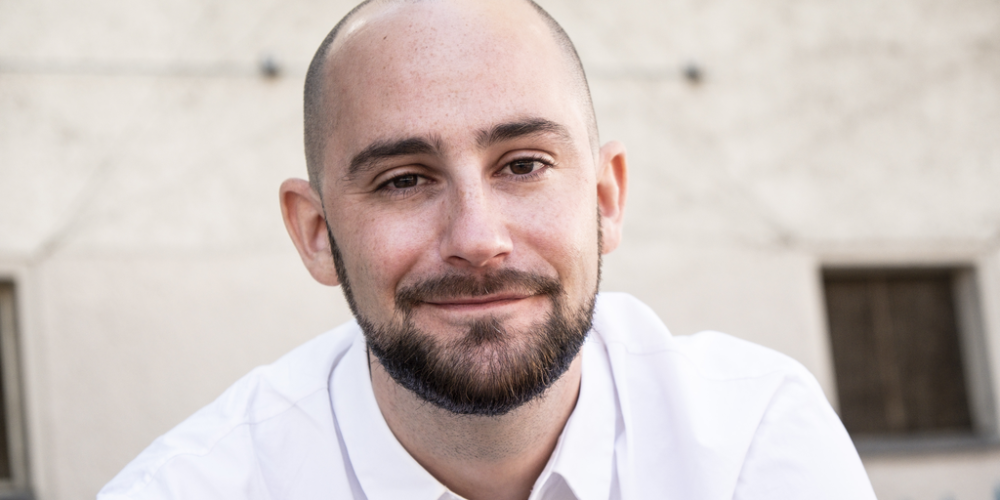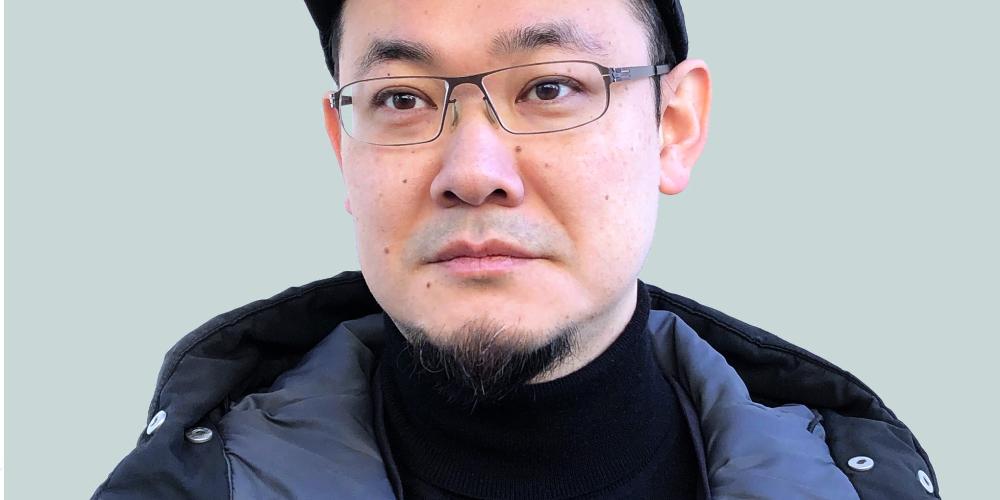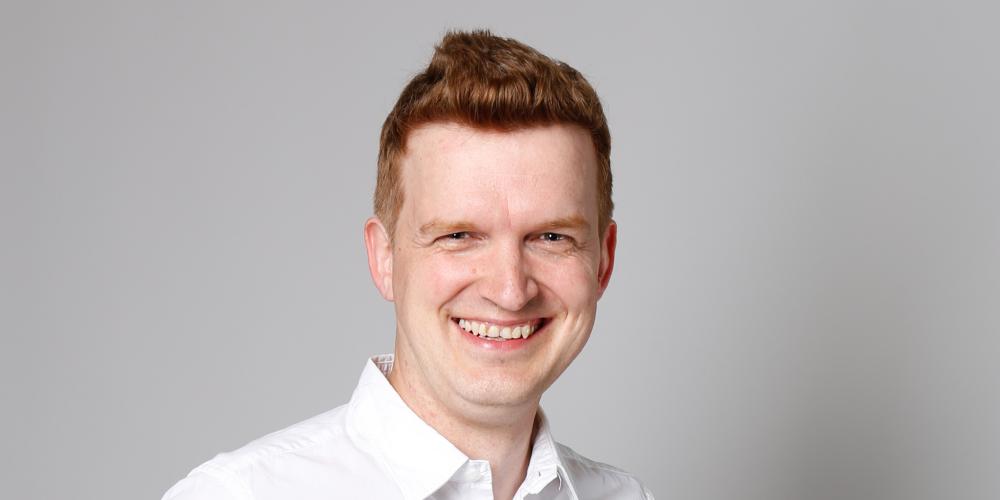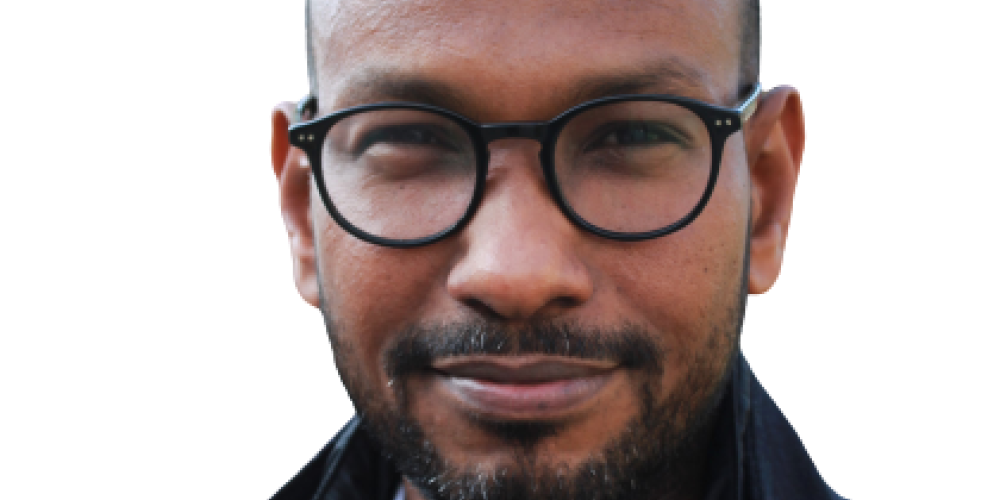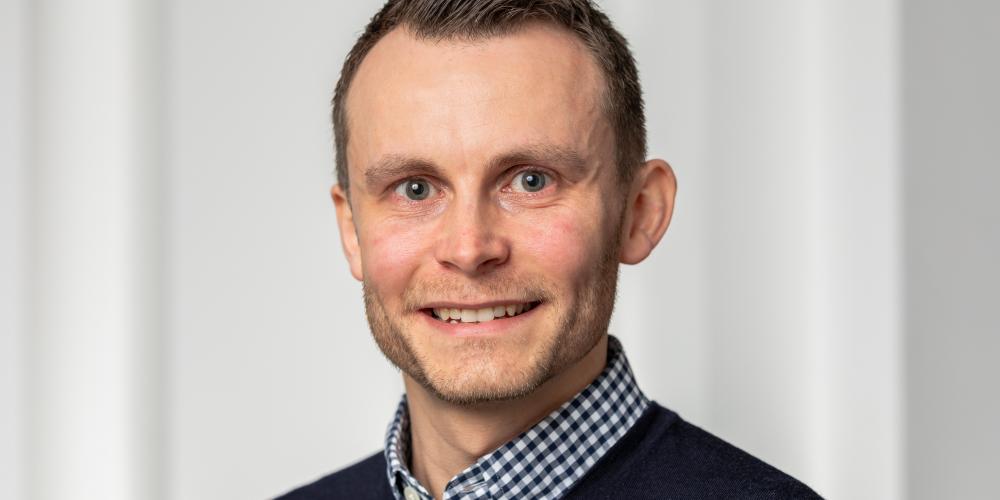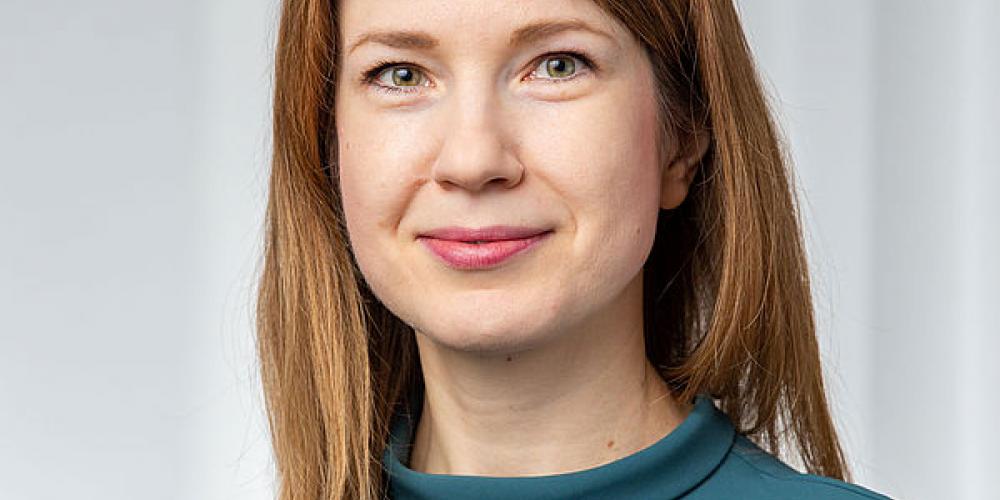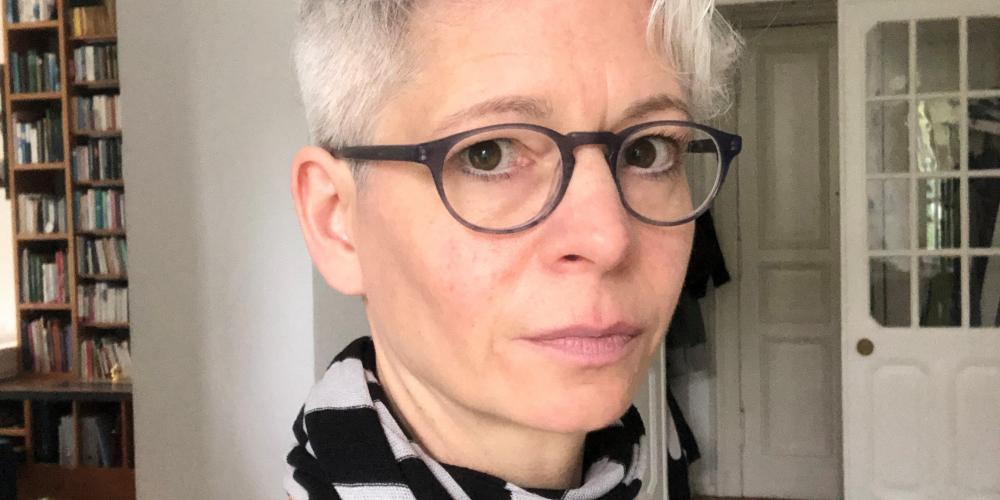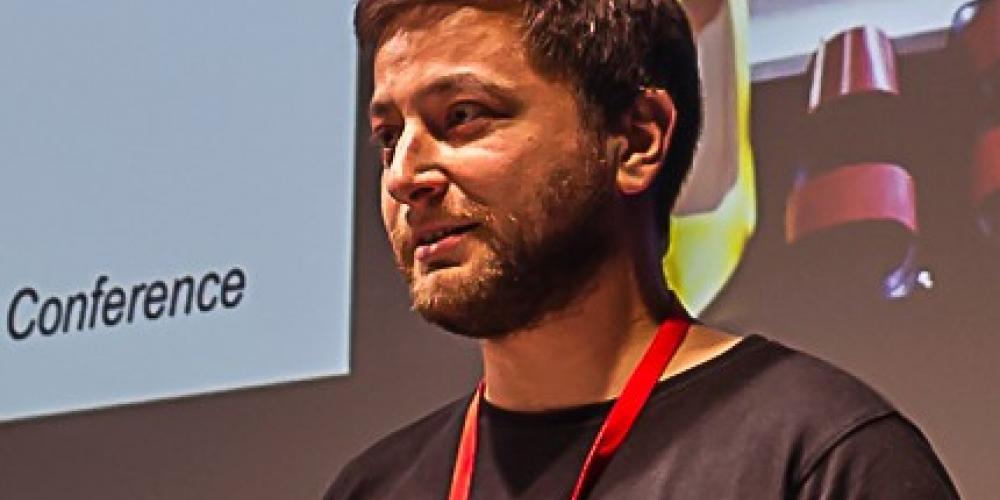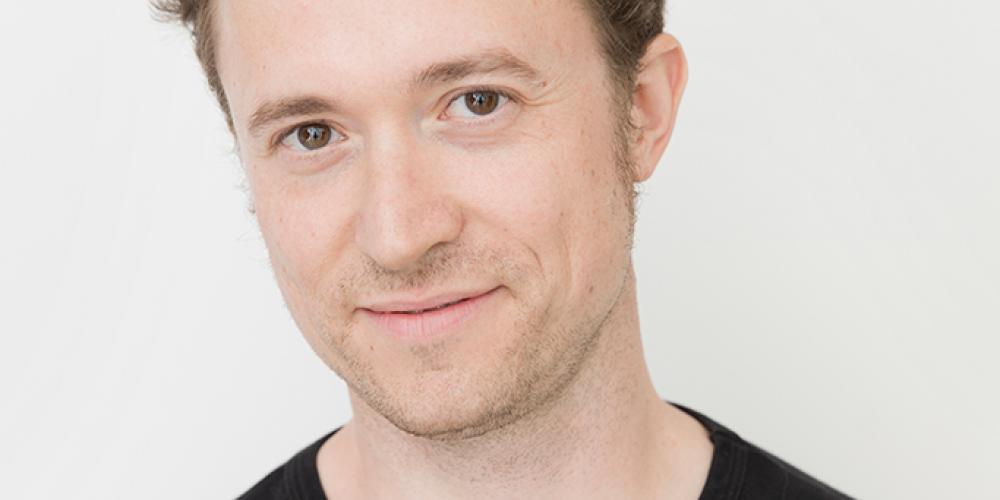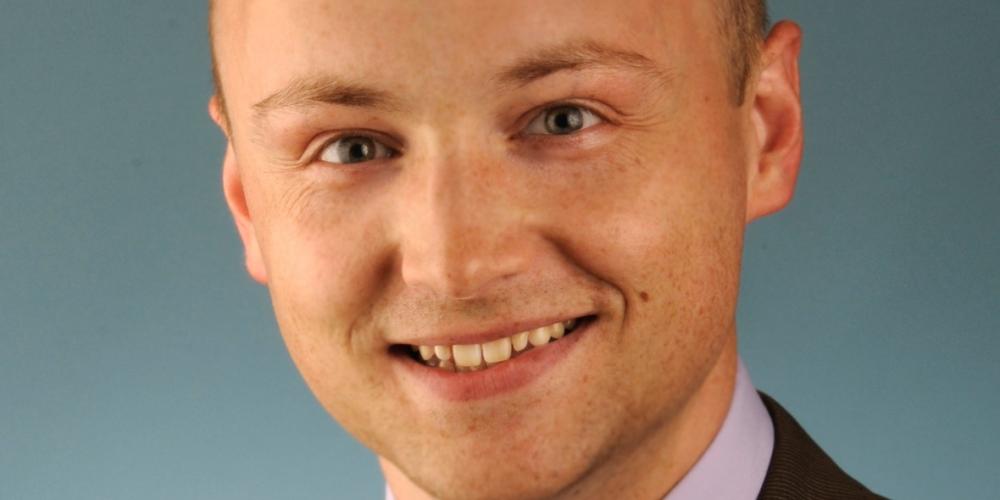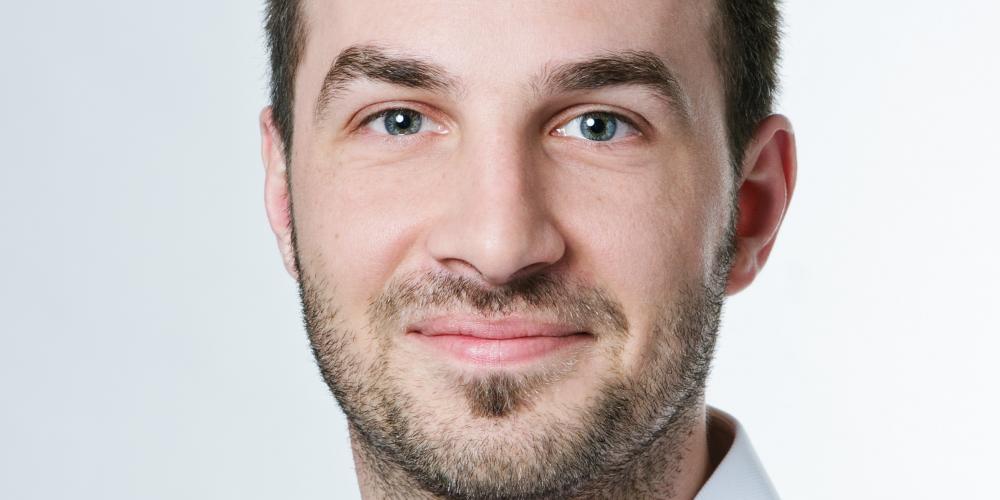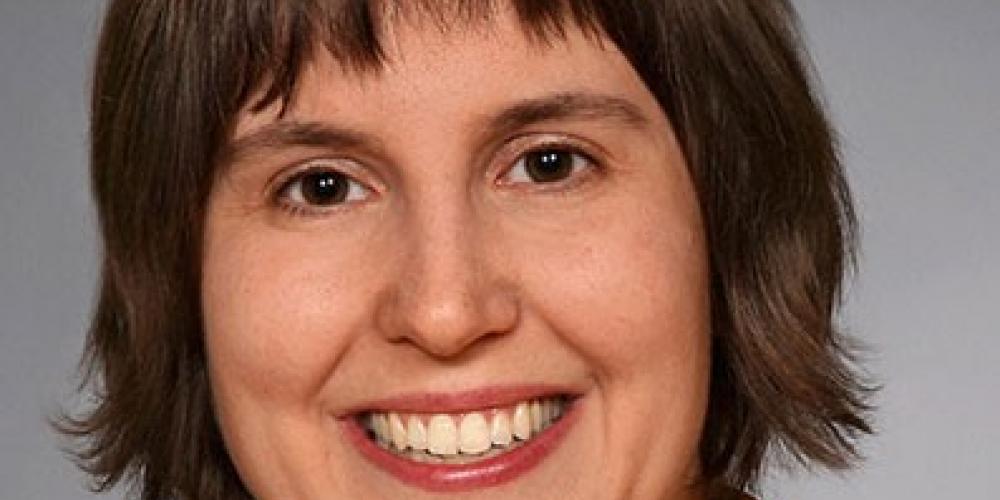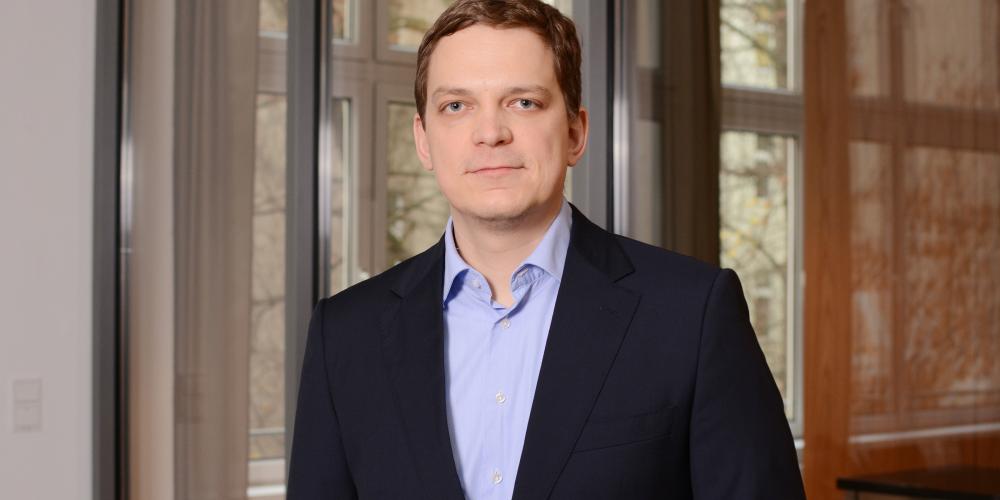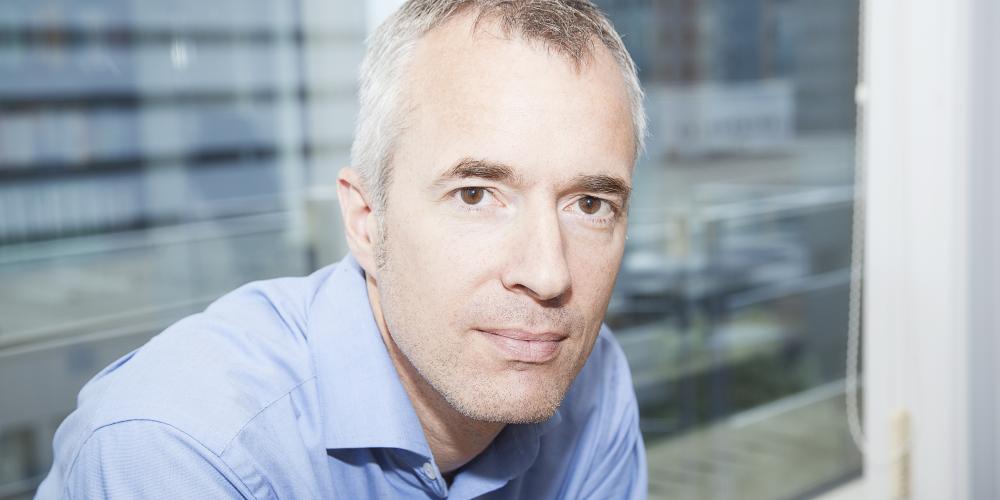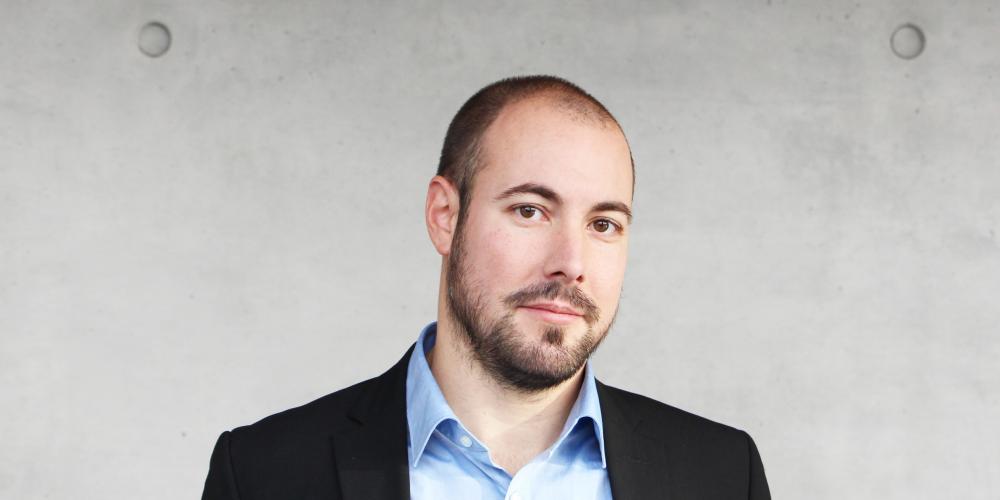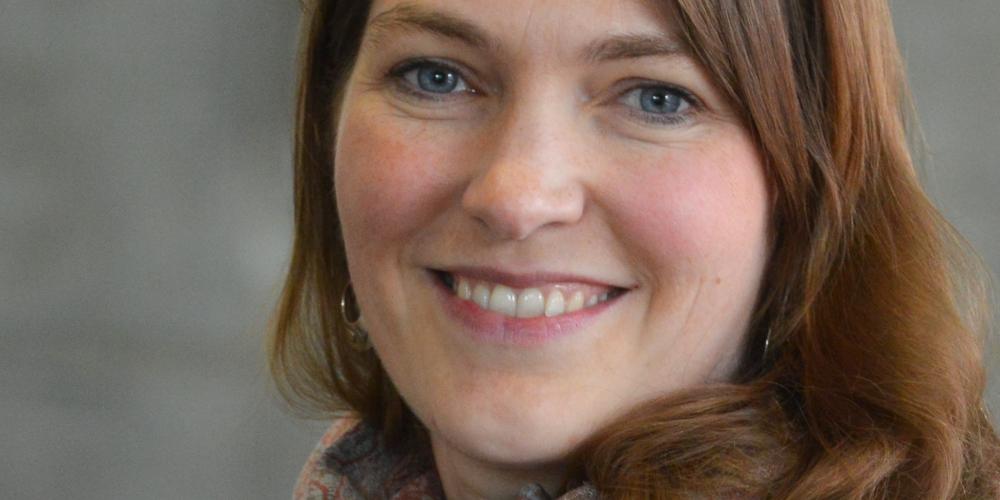Information & Communication Technology
Dr. Lilge, founder of gamelab.berlin, is working on the conception and implementation of digital and analog learning and experience offerings that use playful elements to generate continuous motivation throughout the entire period of use. Examples of such offerings include serious games, i.e., serious games that pursue specific learning objectives; gamified apps, i.e., applications that contain playful aspects; digital and analog exhibits; and immersive room design that immerses the user in a captivating experience. The goal is that people, through these interactive and engaging learning methods, will be motivated to expand their knowledge and actively engage with the content. In addition to his work as a researcher on the cultural technique of games, he advises companies and organizations on the topics of gamification and human focused design.
- Conception and testing of digital prototypes
- Consulting on interdisciplinary innovation projects
Twiddle - mobile game for 8 research museums of the Leibniz Association
Polarstern 360° - Virtual and Augmented Reality Exhibition at the Bremerhaven Maritime Museum
Snapture - mobile game for teaching image literacy for the Bode-Museum Berlin
Mein Objekt - playful knowledge transfer for e.g. Humboldt-Forum Berlin, Badisches Landesmuseum, a.o.
Gamification Expert Level 3 of the Engagement Alliance and
certified Octalysis Framework user
Prof. Staab's research combines topics of labor, social structure analysis, sociology of technology and political economy in a contemporary analytical perspective. Currently, Prof. Staab is particularly involved with questions of the political shaping of digital capitalism, the connection between digitalization and sustainability, as well as the role of critical infrastructures for the future viability of modern societies. The professor pursues a theory-oriented, present-diagnostic sociology in the context of social change, conflict, and inequality, which always seeks dialogue with the public.
- consulting,
- drafting of studies and
- policy papers as well as presentations
on important current topics in the areas of society, politics and economics, in particular digitalization and sustainability as well as work. The focus is on future developments of society as well as political and economic options for action.
- Organizing and conducting several conferences with a large political foundation
- Writing a policy study for a large labor union
- Advising members of parliament, ministries as well as the European Commission
Prof. Miyazaki, is a critical humanities scholar working on the theory, critique, and history of digital media, digitization, and computation as productive practice. He uses numerous social-critical, philosophical and technology-related theories of the last century (historical materialism, critical theory, poststructuralism, science and technology studies, media theory, media archaeology, postcolonialism, design studies). Currently, Prof. Miyazaki is working on the theory and history of alternative, non-profit, sustainable production practices that could be realized through other types of digitization. The focus is not only on social change, but also on technical-media change, which has no future without critical knowledge of technology.
Consulting through studies, lectures and talks on current topics in the field of information technologies, algorithms, society, culture and politics with a focus on digitalization, sustainability and criticism. The focus is on the deployment of alternative lifestyles and forms of life in the future, as well as socio-political opportunities to take action.
- Establishment of the Critical Media Lab at the Institute Experimental Design and Media Cultures at the School of Art and Design FHNW (Claudia Mareis).
- Associated Investigator in the Cluster of Excellence "Matters of Activity".
- Publication: "Counter-Dancing Digitality. On Commoning and Computation".
Professor Zender and his team at the Chair of "Didactics of Computer Science | Informatics and Society" work on a wide range of topics related to educational technologies, the teaching methodology of computer science and socio-technical systems. He focuses on the use of immersive technologies such as virtual and augmented reality in teaching and learning settings. His activities concentrate on the design and development of such VR and AR systems. In his projects, Professor Zender always collaborates with a wide network of interdisciplinary partners from the fields of computer science, media didactics, media pedagogy and various other.
In addition, Professor Zender is the deputy speaker of the specialist group on educational technologies of the German Informatics Society (GI) and initiator of the GI working group on VR/AR-Learning.
- Consulting on the use of educational technologies in concrete teaching and learning settings
- Conception and development of learning-effective applications with virtual and augmented reality (VR/AR)
- Conducting lectures and training courses on the topic of "Teaching and Learning with VR/AR"
- Cooperation with companies and research institutions from vocational education and training: conception and development of teaching/learning systems, realisation of transfer events
- Cooperation with training institutions from the automotive industry in particular: development of VR simulations for training purposes
- Cooperation with companies from the IT sector (e.g. providers of learning systems): design and development of teaching/learning systems
- Cooperation with scientific institutions (universities, private research institutions, etc.): implementation of research projects, scientific events and transfer activities as well as community work
Teaching and Learning with Virtual and Augmented Reality
Siemens CT
Professor Greven's expertise is particularly in statistics, data science, statistical learning, machine learning, statistical modeling, statistical inference, biostatistics, and their applications in various fields (economics, social sciences, medicine, epidemiology, engineering, linguistics, etc.). She is also well-versed in functional data analysis and statistics for object data (curves, images, shapes, etc.).
- 2 projects on functional data analysis for sensor data with Siemens CT
PD Dr. Siddig is interested in studying the trade-offs and synergies between the production and use of water, energy, and food in developing countries as influenced by climate, population, and policy, including distributional, economic, and regional impacts.
Geographically, his research focuses on Africa and the Middle East. Methodologically, he relies largely on economy-wide simulation models, with CGE models leading the way (including ind GAMS and Gempack). In addition, Dr. Siddig works on capacity development in the area of database development and on policy simulation modeling in a development context.
-
Computable General Equilibrium (CGE) modeling and macroeconomic analysis in GAMS and Gempack
-
Social Accounting Matrix
-
Policy modeling
-
Development of training materials and training of groups and individuals
-
Mastery and experience in developing and training developers of social accounting matrices (SAMs) and GTAP-ready input-output tables (IOTs)
- Entwicklung und/oder Schulung von Entwicklern von SAMs und/oder IOTs für Sudan, Ägypten, Israel, Palästina, Benin, Kenia, Chile, Armenien und Nigeria
industrial companies and research institutions
security company
Prof. Florian Tschorsch and his team research interests revolve around the analysis and design of distributed systems, in particular network architectures and communication protocols. Here, the inherent implementation of data protection and security requirements in a networked environment represents the overarching research goal. Furthermore, the interaction with other system properties such as resilience, scalability, performance and decentralization is considered. Within this framework, topics such as anonymity or weak identities, data privacy, telemetry infrastructures, peer-to-peer networks, and blockchain technologies are explored.
In addition to this technical expertise, the team is also experienced in collaborating on a wide range of interdisciplinary projects, for example in exchanges with lawyers, economists, and data analysts.
- Threat modeling with regard to data protection, data security and network security
- Network measurements and simulations
- Design and analysis of resilient distributed systems and algorithms
- Consulting on the handling of unauthenticated digital identities
- Consulting on the use and integration of blockchain technologies
- Project work in interdisciplinary teams consisting of industrial companies and research institutions
- Cooperation with a security company on the topic of digital identities and IT infrastructures
- Implementation of pilot projects in real applications
- Mentoring or consulting for startups and companies in the area of network security and blockchains
world-leading energy group
Professor Danilov is engaged in empirical human resource management research, as well as the identification of causal relationships of the effect of human resource management tools on employee motivation and productivity. She also conducts research in organizational and human resource economics, in the field of empirical human resource management (HRM), and in the course of this she works with Big Data and People Analytics using machine learning.
- randomized studies (A/B tests) on incentive setting
- work design and employee motivation
- analysis of data (accounting, personnel, etc.)
- "Delegation of decision making and productivity and employee satisfaction" at a world-leading energy company.
NaTiMon (BMEL)
PanSens ( Agricultural Pension Bank) with dropnostix GmbH
Professor Hillman's research focuses on the influence of husbandry conditions and management practices on the welfare of farm animals. Her research in the area of animal welfare ranges from the validation of animal welfare indicators, including animal health, to the practical implementation of animal welfare measures.
Hillmann and her team concentrate on animal behavior. In addition, they use information on animal health, such as (stress)-physiological variables and economically relevant characteristics (e.g., meat quality).
Ethical and legal considerations also play a role in her research. However, practical problems in animal husbandry are in the foreground. Besides classical behavioral observations, often with the help of video recordings, stress-physiological, clinical and cognitive parameters are added, but also techniques for automated recording of animal behavior.
Many problems in animal husbandry are related to a disturbance in behavioral control. Professor Hillmann's basic research in behavioral control thus also leads to solutions of practically relevant behavioral problems in farm, pet, laboratory, and zoo animals. Such solutions work at the roots of the problems because they are based on causal understanding of the underlying control mechanism.
In both application and basic questions, the measurement and consideration of the animals emotion plays a critical role as a component in the control of behavior, as well as in relation to their welfare.
Her research thus moves in the area of tension between scientific/clinical basic research, application and questions from the fields of agricultural economics and social sciences.
- Equipment for behavioral observation (video/3D acceleration)
-
NaTiMon (BMEL): Development of basic principles for regular, indicator-based monitoring and reporting on the status of animal welfare of sheep and goats in Germany, as well as its change over time. This animal welfare monitoring is intended to take into account the various dimensions of animal welfare at the relevant stages of the animals' lives (husbandry, slaughter, transport)
-
PanSens ( Agricultural Pension Bank): The object of the sub-project is the application of the reference system for standing and lying times, the basic validation of the parameters movement activity and standing and lying times, and the scientific monitoring of the development work and the iteration for the detection of specific cow diseases. Practice partner: dropnostix GmbH
- Education and training for animal experimenters (selective)
Prof. Dr. Alan Akbik conducts research in the field of machine learning (ML) and natural language processing (NLP). His goal is to enable machines to capture, understand, and use natural language like a human.
To this end, he has developed one of the world's leading deep learning frameworks for NLP, which is already being used in over 1,000 research and industrial projects.
Consulting in:
- Deep Learning
- Natural Language Processing (NLP)
- Machine Learning (ML)
- 3 Patents at IBM Research
- Zalando Outstanding Achievement Award
Humboldt Forum
Charité
Dr. Stein has a lot of experience with the conception and development of serious games and gamification for knowledge transfer, especially for museums, cultural institutions and in medicine. As a Germanist and computer scientist, he masters both the conceptual and cultural perspective as well as the technical of implementation. He has led over 15 software development projects in the areas of App, VR, AR and Browser Apps. When it comes to imparting knowledge and gaining experiences, games are the medium of our time, according to Dr. Stein. As a researcher and game developer, he is particularly interested in exciting mediation challenges.
http://humboldt.gmbh/forschungskooperation
Dr. Stein develops concepts for knowledge transfer games, Serious Games and Gamification. He is also involved in software development, implementation and testing. He also offers workshops on VR and games as a cultural technique.
The following software projects were all developed iteratively and agilely in an academic context according to Dr. Stein's conception. In addition, they were tested and published under his leadership and represent a significant part of his publications.
Mein Objekt
- Mein Objekt
is an innovative museum game that enables visitors to engage in dialogue with objects, seeking to transform digital habits into cultural interest. Using machine learning and adaptive language, an adaptation of the application to the individual visitor is ensured, resulting in a personalized, interest-driven museum tour. The project was developed for the Humboldt Forum as part of museum4punkt0 and will be used there for the first time when it opens. It is developed in React Native and is used BYOD for Android and iOS.
Diary
-
Diary is a tool for exploring scientific interdisciplinary work and has been developed for the Experimantalzone of the Cluster of Excellence Image Knowledge Gestaltung to better understand interdisciplinary collaboration. It is developed for macOS in Objective-C and can record, visualize and synchronize activities such as software usage, keystrokes, activity cycles and more with a server. It is used to explore digital working practices and habits across disciplines and also benefits users in terms of self-reflection on their working practices.
iWrite
- iWrite is a gamified tool to improve scientific writing processes. It is developed for macOS in Objective-C and allows the user to organize writing processes into focused sessions, eliminate distractions, visualize progress, and schedule writing sessions. It also unlocks step-by-step tips and videos from writing experts.
BWG VR
- BWG VR is an interactive, stereoscopic 360° experience for virtual reality headsets that shows the Cluster of Excellence Image Knowledge Gestaltung in its various spaces and presents actors of the cluster exemplarily in their working environments. The connection between space, objects and people is presented and the complex configuration of different actors is made tangible.
Singleton
- Singleton is a game for integrating personal goals into everyday life and individual development based on self-imposed priorities based on theoretical principles from psychology and game studies. It is developed in Unity Mobile for Android and iOS and allows entertaining and goal-oriented microinterventions in a level system based on individually generated card decks. It is based on the Big 5 character traits and dynamically assigns specific card packs individually to the user.
ID+Lab
- ID+Lab is the prototypical front-end of a publication platform designed to publish interdisciplinary research as a network and to show connections that otherwise remain hidden. It is developed as a web application and is based on Semantic Web technologies with GraphDB in the background. Publications are modeled here as a semantic network and visualized dynamically and intuitively. A DFG research proposal to deepen the project is currently under review.
Reading Revisited
- Reading Revisited is a VR application that tests reading in virtual reality and dynamically integrates various texts into moving landscapes. It explores the question of what influence reading environments have on comprehension and memorization and whether text can be thought of as a combination of environment and reading. Texts from the cooperating publisher Merve Verlag can be read and experienced in VR and can be received in a specially developed environment.
Bee Virtual
- Bee Virtual is a collaborative VR application in which two subjects control virtual bees by gaze direction and steer them through a virtual space. It was developed in Unity 3D for Oculus Rift. This is modeled on the physical space of the Central Laboratory Room of the Cluster of Excellence Image Knowledge Gestaltung. In an experimental setting, it was investigated how objects are remembered in VR, how virtual spaces can be transferred to physical ones, and to what extent communication among the test subjects influences the remembering of environmental properties.
PlosOne Metadata Extractor
- PlosOne Metadata Extractor is a browser plugin that extracts metadata in lists of PlosOne publications including abstracts, making them processable and analyzable for text mining.
Decide & Survive
- Decide & Survive is a game that makes it possible to experience decision-making processes in foreign policy contexts and aims to investigate the influence of user interfaces on player decisions by using both aggressive and neutral interfaces and sounds. It is developed in Java with JavaFX and runs server-side via PHP.
OncoLogg
- OncoLogg is a game designed for multiple myeloma patients and their families to educate them about therapies, risks and side effects. It lets the player experience different therapy cycles and refocuses from healing to achieving life goals. The game was developed together with the Charité in Java for Android.
iglos
- iglos, or the Intelligent Glossary, is a semantic network design application intended to identify and facilitate terminology and comprehension problems in interdisciplinary academic projects. It is browser-based developed with web technology and RDF/OWL compatible.
- Workschops
Forum Junge Spitzenforscher 2013: Project Big Data for Knowledge Networks
workshop on the analysis of Twitter data for Stiftung Wissenschaft und Politik (SWP)
Professor Jäschke and his team develop and optimize methods in the areas of Big Data and Machine Learning, especially in the aplication fields of Natural Language Processing, Social Bookmarking and Recommendation Systems. This includes the Collection (e.g. through focussed Crawling), Compilation, Annotation (e.g. by means of Crowdsourcing) and Curation of suitable records (data sets).
Further, it includes the Adaptation and Improvement of appropriate Algorythms (e.g. Named Entity Recognition, Classification, Clustering, Information Extraction, etc.) culminating in the development of web-based analysis platforms.
- Hadoop-Cluster
- GPU calculator
- diverse datasets
several medium-sized and DAX companies
Mendling's research focuses on the question how business processes can be efficiently and effectively supported by information systems. To this end, Mendling and his team address questions of the information technology as well as of managerial questions.
Within the framework of business process management they developed a series of technical solutions for process mining and also management tools like the BPM Billboard.
The expertise of Mendling and his team is summarized in the seminal textbook "Fundamentals of Business Process Management", which is used by over 250 universities in 70 countries.
- cooperation with businesses from different branches
- design of training concepts for process management
- performance of training courses and projects for process improvement
- development of new analysis software for business processes
In the context of his projects, Mendling worked together with many medium-sized companies and DAX-companies from different branches.
LL.M. Digitalization and Tax Law
The research of Prof. Greifeneder and her team at the Chair of Information Behavior focuses on user research. She is particularly concerned with people’s search and user behavior when dealing with information or metadata both while using a traditional library as well as in fields such as digital libraries or research data. Key aspects of her work include the use of online survey methods and natural habitat research as well as securing the validity of data in a laboratory setting and in natural environments. Additionally, users’ private information sharing behavior and context research are central issues in Prof. Greifeneder’s research.
Prof. Greifeneder and her team employ qualitative and quantitative research methods of information science with a focus on user research. This includes survey design and implementation, both online and in the form of natural habitat research, interviews, case studies, experiments, scientific observation, focus groups and eyetracking. The Chair of Information Behavior boasts a modern research laboratory, the iLab:
- The iLab consists of two functionally differentiated rooms, connected with a door made of spyglass, that contain mobile desks (height can be adjusted electronically), swivel chairs, mobile partition walls, magnetic glass boards and a facilitator’s toolbox
- Technical equipment: beamer, cameras, microphones, mobile sound recorders, tablets, notebooks, smart watches and eye-trackers
Accor Hotels Germany
SHS VIVEON realisation of training for interviewers
International executive headhunting company: development of customised personality test
Prof. Ziegler's expertise and that of his team lies in the field of psychological diagnostics and deals with all topics of personnel diagnostics in the HR life cycle. They focus on personality, intelligence and situational awareness. Ziegler and his team develop solutions to measure these in relation to requirements and to use them for performance or learning prediction. Therefore they use the full range of qualitative (e.g. interviews) and quantitative methods (e.g. tests, questionnaires, machine learning).
Prof. Ziegler has already carried out several successful projects with well-known companies in this area, involving the creation of competency models, employee surveys, annual appraisals or job aptitude diagnostics. Prof. Ziegler's working group also trains individuals or teams on topics of personnel diagnostics (e.g. assessment centers or interviews). In addition, Prof. Ziegler develops customized diagnostic processes or evaluates them.
- PC lab with 10 workstations and various performance and personality tests
- Online surveys
- Data analysis
- Consulting
- Trainings - wide range of topics
-
Competence model development - Prof. Ziegler and his team have developed competence models for different professions for various clients and made them measurable
-
Accor Hotellerie Deutschland GmbH: Development of competence models
-
SHS VIVEON AG: Implementation of interviewer trainings
-
International headhunting company for executives: Development of a customized personality test
-
Evaluation and optimization - In these projects Prof. Ziegler looks at existing personnel processes, evaluates their quality from a psychological point of view and develops optimizations.
Our daily life more and more depends on computational systems embedded in common appliances. Just think of advanced driver assistance systems in cars, medical devices, or indsutrial supervisory control and data acquisition systems. Since such systems also realise safety-critical tasks, it is all the more important to provide effective and efficient quality assurance for them. The specification, verification and testing theory group researches methods for model-based development and model checking, logical verification, and automated testing of safety-critical software. Prog. Schlingloff is chief scientist of the system quality center at Fraunhofer FOKUS, Berlin, and chairman of the boards of GFaI e.V. and ZeSys e.V.
- Major German company for communication and sensors: Student semester project for the design and implementation of a system for distributed control of indoor air quality.
Prof. Pinkwart’s research group investigates a range of topics including adaptive educational technologies, computer supported collaborative learning, computer science education methods (especially in the fields of programming and modeling), social media and cooperative systems, and socio-technical systems. In addition, they develop multimodal human-computer interaction methods using interactive surfaces, mobile devices and 3D technologies. Prof. Pinkwart is a well-known member of numerous national and international committees and projects in basic and applied research. His team can offer specialised expertise in computer-assisted education and training, especially in the field of mobile and ubiquitous learning and teaching scenarios, computer-based group learning methods, and adaptive mechanisms in e-learning. In this context, Prof. Pinkwart and his team realise numerous research projects and co-operate with several educational institutions and companies. Concerning socio-technical systems, Prof. Pinkwart’s team conducts research on issues of design, implementation and evaluation of group-oriented software applications (e.g. online communities).
- interactive table (multi-touch)
- electronic boards
- tablets (20x)
- co-operation with IT companies: consulting for didactical concepts applied to online courses in the fields of media production and e-learning
- co-operation with e-learning companies: formation of study groups in large online courses
- co-operation with automotive supplier: designing human-machine interfaces for production machines
- co-operation with automotive manufacturer: multimodal control concepts for car infotainment systems
IT system house
IT product manufacturer
international pharmaceutical company
medium-sized biotechnology company
The research of Prof. Leser and his group is focused on all aspects of management, integration and analysis of heterogeneous, large and distributed data sets including natural language texts (text-mining and information extraction). This encompasses subjects such as data warehouses and ETL, graph databases, deep web and semantic web, machine learning, similarity search, scientific workflows, statistical methods of data analysis as well as methods for assessing and securing data quality. The team of Professor Leser conducts research in a variety of interdisciplinary projects, especially with colleagues from the life sciences covering the range from basic molecular biology to Systems Medicine.
Very good IT-facilities:
- several state-of-the-art parallel computer cluster (20-80 CPUs, 1 TB main memory)
- cluster with 60+ cores
- 50TB+ storage
- For an IT service provider: Consultancy and prototype development in the field of master data standardisation and integration
- For an IT-manufacturer: Development and valuation of algorithms for analysing data quality
- For an international pharmaceutical company: Consultancy and development of text-mining-procedures in biomarker development
- For a medium-sized biotech company: Joint system development (partly funded by the German Federal Ministry for Economic Affairs and Energy) in the field of human genotype changes evaluation
Model-driven engineering raises the level of abstraction in software engineering by using models as primary development artifacts. In particular, domain-specific modelling languages can ease the transition between informally sketched requirements or designs and implementations by supporting high-level yet formal representations as a starting point for automation. Moreover, using a model-based development approach, critical system properties can be analyzed, validated and verified even before the system is actually built. Model-driven development thus leads to an increase in both productivity and quality. To some extent, model-driven engineering has made its way into industrial practice, most notably for the development of embedded systems in various domains. However, model-driven engineering does not suffice to successfully manage all challenges of modern software engineering, and actually creates new problems. Research conducted at the Chair of Model-driven Software Engineering is particularly driven by relevant challenges and problems arising from the adoption of the model-driven engineering paradigm in industrial practice.
- Experience in implementing model-based development engineering methods, techniques and processes
- Know-how regarding the set-up of model-based transformation chains (domain-specific modeling languages, model transformation and interpretation, code generation) and development environments (collaborative modeling, (co-)evolution of models, model repair and synchronization)
- Expertise in the field of version and variant management, especially customized configuration management and software product lines
- Collaboration with a Berlin-based software company on the development of innovative software architecture analysis techniques for the quality assurance of embedded systems
- Consulting for a major German automotive supplier with regard to fundamental questions of configuration management of models for the model-driven development of embedded systems
- Support of an international electrical engineering corporation with the model-based development of software components for a new generation of internet-based multimedia building communication systems
Prof. Hoppe’s research is focused on Occupational Health Psychology (OHP) especially on the analysis of work activities to maintain employee health and performance as well as to provide learning and development opportunities. OHP integrates occupational and health psychology with occupational medicine and traditional labor safety, which is insufficient for today’s flexible employment situation. Prof. Hoppe also examines the psychosocial characteristics of a specific workplace, e.g. work requirements or the level of influence on and control over tasks as well as the social working environment. She also studies the effects of these characteristics on employee health and his/her well-being. She investigates how psychosocial work characteristics influence an employee’s motivating factors like job satisfaction and commitment. Particular attention is paid to the situation of migrant and low-skilled workers and the analysis of the impact their workplaces and work environments may have on their health and well-being. Moreover, Prof. Hoppe studies multi-ethnic and -lingual workforces and the effects of diversity on employee health.
- risk assessment methods for workplace conditions
- employee surveys regarding the promotion of health at workplace
- interventions to promote health at work
- postal operators, logistics companies, professional care providers, manufacturing companies: execution of employee surveys to gather data on psychosocial strain and resources in the workplace and to analyse effects of stress, job satisfaction and work performance
- public institutions (e.g. universities, federal ministries), consulting companies, self-employed persons: development of health-related interventions and training sessions via mobile devices (e.g. smartphones, tablets) to facilitate recovery strategies and self-management
- Michel, A. & Hoppe, A. (2022). Handbuch Gesundheitsförderung bei der Arbeit: Interventionen für Individuen, Teams und Organisationen (1. Aufl. 2022 Aufl.). Berlin: Springer.

